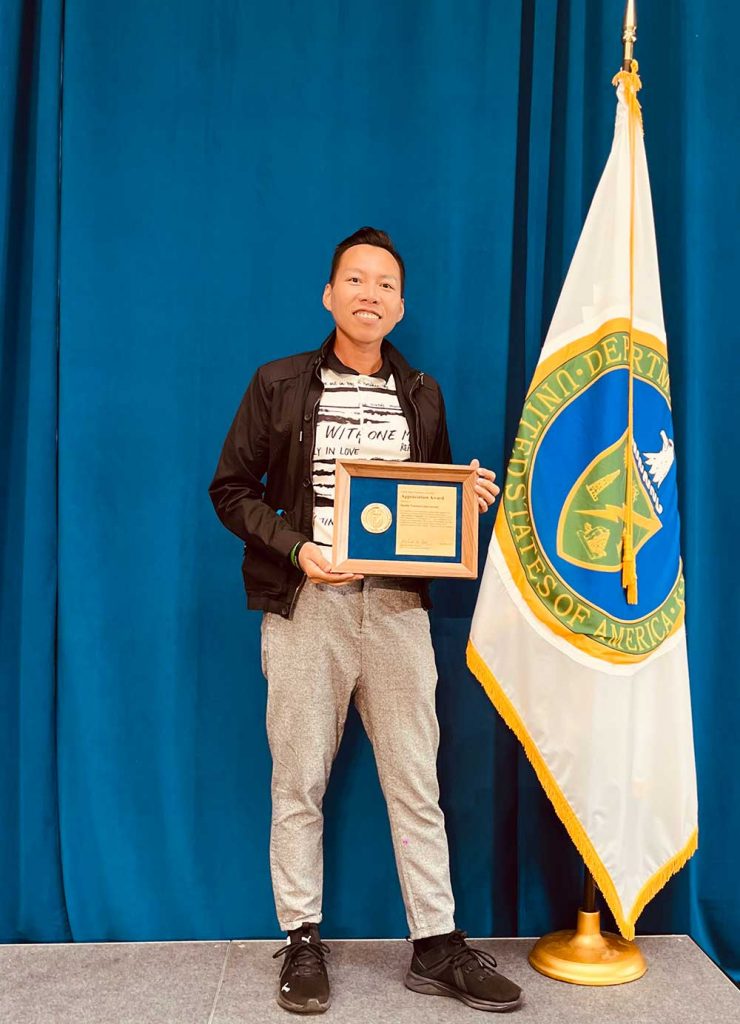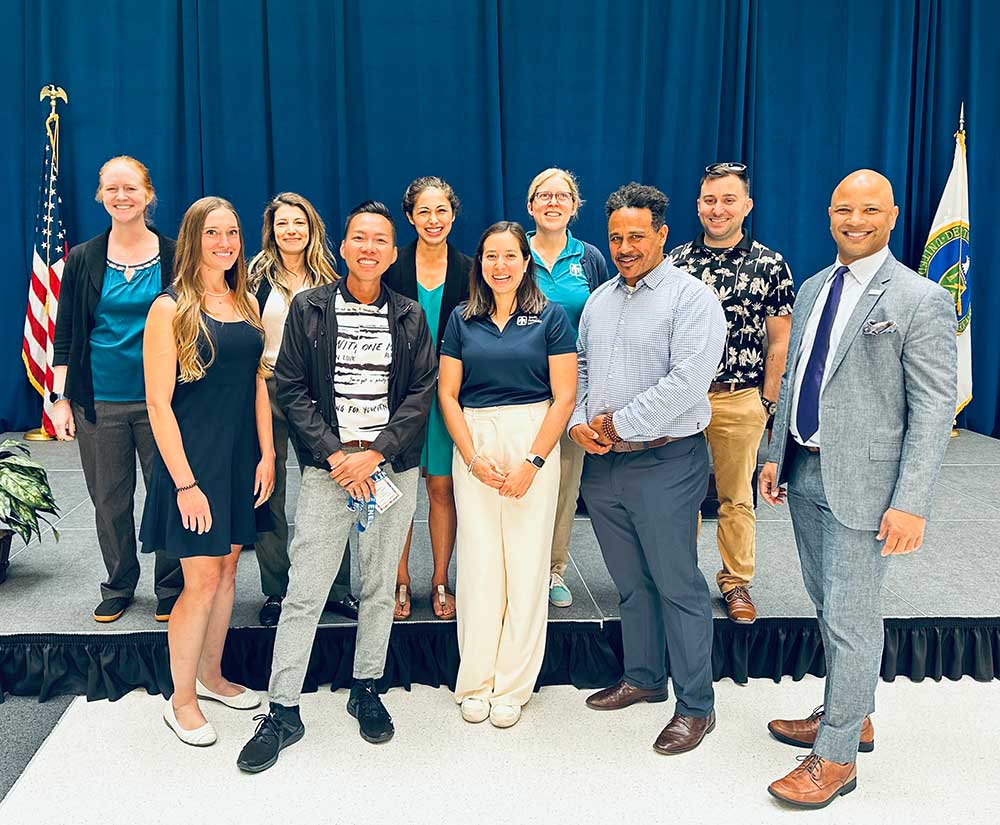Brian Duong shares his story of finding belonging as a Sandian

Belonging isn’t about fitting in. At Sandia, it’s about being who you are and building authentic connections with a shared purpose — creating a larger work community to support and inspire one another.
The Labs’ People and Culture strategy and the Integrated Security Solutions division focus on belonging, connection and contribution aim to make Sandia a better place to work.
Lab News is featuring Sandian stories of finding connection, starting with Brian Duong, chair of the Asian Pacific Leadership Committee.
Connecting others together
After joining Sandia in January 2019, Brian dove headfirst into finding a sense of belonging.
That month, Brian attended a meeting of the Asian Pacific Leadership Committee. The group’s leadership roles were rotating out at the time, and before he knew it, he became the new chair.
At his previous workplace, Brian was a lead for employee engagement efforts, so becoming the chair of the committee was a natural fit.
“I love to connect people,” Brian said. “I love to hear different stories, and I love to do something so people can feel like they’ve been valued at work.”
He took this passion for connecting others a step further a couple years ago when he became co-chair of the Sandia California Diversity Council, which supports the employee resource and networking groups for the California site.
“It gave me a different perspective,” Brian said of the new opportunity to collaborate with all the groups. “It’s more about making sure I hear the concerns of the different groups and working with them to bring everyone together.”
Even though these efforts gave him a fast sense of belonging at Sandia, Brian has still experienced times when he felt out of place.
Climbing upward toward belonging
In his first few weeks as a Sandian, Brian faced a sense of exclusion when entering a building behind another workforce member. The door closed between them, and then Brian swiped his badge and walked inside. The individual who went in before him turned back to ask Brian if he was a U.S. citizen. At the time, Brian thought it was clear his badge access meant he was authorized to enter the building. However, the other workforce member repeated the question.
“You feel targeted,” he said. “Why would he ask me? Because I look different? Because I look Asian?”
Because of Sandia’s security measures, Brian understood someone could ask to see his badge, but this experience left him feeling shut out.

“The Labs are different because there are a lot of things we have to worry about,” he said. “However, the way we ask questions and the way we raise concerns could make a difference. You might forget someone’s name, but you will probably not forget how someone treated you.”
All Sandians have a responsibility to protect national security, though there are ways workforce members can be sensitive to individuals in the process.
“People don’t think about it, but there are biases we all have,” said Tuan Nguyen, counterintelligence officer for Sandia California. “If you are seeing something that is some concern, you have to look at the behavior rather than the individual, because there are people here coming from all walks of life. They all have the same clearances, and they have been vetted. Where they’re from has really nothing to do with whether they should be here or if they have the right access.”
Tuan said anyone with a concern can always ask to see someone’s badge, as that will confirm a person’s access. He added that Sandians can also reach out to Personnel Security or the counterintelligence helpline.
“You don’t have to take it upon yourself to determine whether someone has violated the policy or not. Bring it to the professional, and say, ‘Here’s what I observed,’” Tuan said. “Brian’s story is not unique, because I have received similar feedback from others. We’re really trying to say, let’s look at the incident for what it is — look at the access and at the behavior. That way we can convey that those are the things we are focusing on — not where they’re from, what they look like or how they speak.”
Moving on — and learning about yourself
When Brian became chair of the Asian Pacific Leadership Committee just a few weeks following the incident he described, he was able to pull from his personal experience to help ensure other workforce members feel included as much as possible.
“I really want to help others not feel the same way,” he said. “I want them to have the right resources, so if they ever find themselves in a similar situation, they will be able to lean into the relationships they have built at Sandia and know that they belong here.”
Asian Pacific Leadership Committee meetings and activities have helped Brian connect to his own culture as well as learn about other cultures.
“When we talk to people, we learn about their personal stories and feel connected,” he said. “That really helped to drive trust at work, and for me, that’s a rewarding experience.”
Being part of the committee has provided Brian with a foundation for connecting — something he hopes others may be inspired to try after learning about his experiences.
“I know it’s hard sometimes,” he said. “We have a lot of people with different backgrounds and different personalities. Give yourself a chance to learn new things. You don’t have to struggle by yourself. Try something even a little bit outside of your comfort zone — maybe one time — and go from there.”